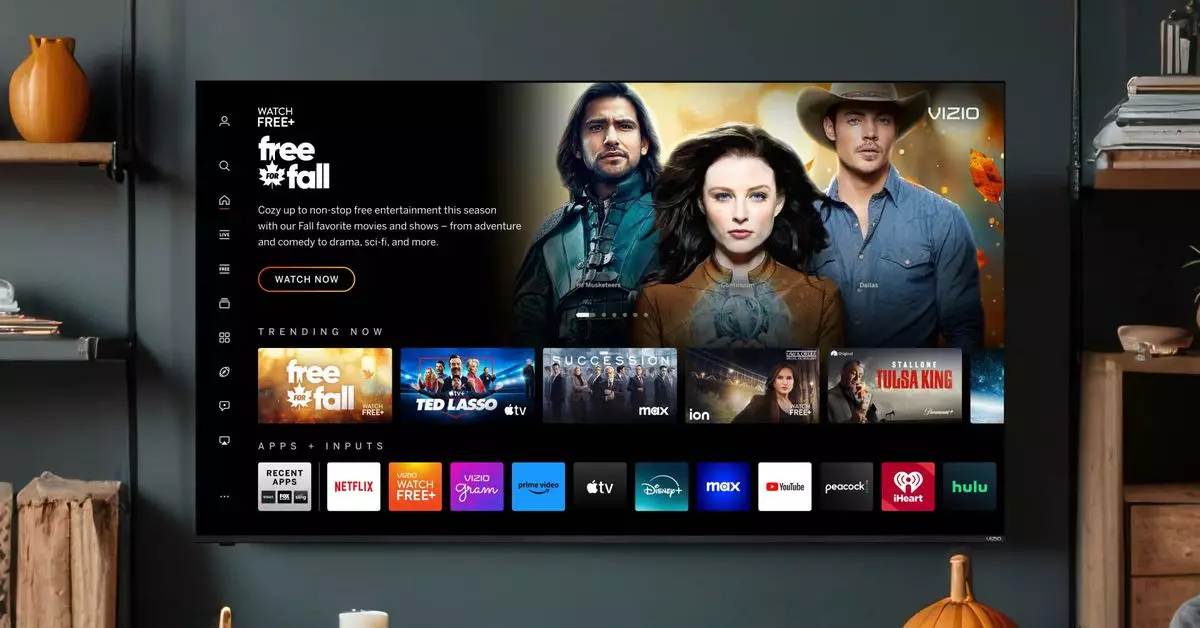In a significant move in the retail and technology sectors, Walmart has officially completed its acquisition of Vizio, a leading television manufacturer, for a substantial $2.3 billion. This transaction, which was initially announced in February, marks a pivotal shift in Walmart’s approach to enhancing its advertising business. By integrating Vizio’s ad-focused division, Platform Plus, Walmart aims to leverage extensive consumer data to bolster its advertising capabilities, setting the stage for an ambitious expansion in the digital marketing realm.
Walmart’s acquisition of Vizio is anchored in the robust revenue potential that comes with advertising. The retail giant recognizes that Platform Plus, which is vital to Vizio’s profitability, will enhance Walmart’s advertising revenue streams. Using insights gleaned from this data, Walmart plans to create targeted ad campaigns on major platforms such as Disney Plus and Hulu, further entrenching its position in the competitive advertising landscape. This strategic endeavor could significantly increase Walmart’s advertising revenues by directly connecting its vast consumer database with potential advertising clients.
Moreover, the acquisition positions Walmart to compete more effectively against other advertising powerhouses like Roku, which has successfully integrated retail and media by offering targeted advertising services. In comparison, Roku’s recent financial performance underscores the potential profitability of such integrations — it generated over $908 million in advertising sales in the last quarter, demonstrating the lucrative nature of this market. Conversely, Vizio had reported a lower revenue per user at approximately $37.17, highlighting the opportunity for Walmart to enhance this metric.
However, the acquisition does not come without its challenges. Vizio has faced scrutiny in the past, particularly regarding privacy issues. The company was embroiled in a legal controversy in 2017, resulting in a notable settlement due to accusations of tracking user data without consent. As Walmart seeks to expand its advertising initiatives, there is a heightened responsibility to address these privacy concerns adequately. Consumer trust will be paramount as Walmart implements new advertising strategies on Vizio’s platform.
Moreover, privacy advocates are likely to remain vigilant, raising questions about how the merger may impact consumer data usage. Ensuring compliance with privacy regulations while successfully capitalizing on Vizio’s advertising capabilities will be a balancing act for Walmart executives moving forward.
Despite the acquisition’s implications, both Walmart and Vizio are set to retain operational independence in the near term. Vizio’s CEO, William Wang, will continue to lead the company, providing stability during this transitional phase. Seth Dallaire, Walmart’s executive vice president, highlighted the importance of Vizio’s advertising success throughout the acquisition process, showcasing Walmart’s recognition of Vizio’s capabilities in adjusting to market demands.
Walmart’s acquisition of Vizio could potentially redefine its advertising strategy and revenue model. By capitalizing on consumer data, expanding advertising capabilities, and addressing privacy concerns, Walmart may solidify its position as a formidable player in the media and retail sectors. The upcoming developments post-acquisition will undoubtedly be closely watched by industry stakeholders and consumers alike, as Walmart embarks on this transformative journey.


Leave a Reply